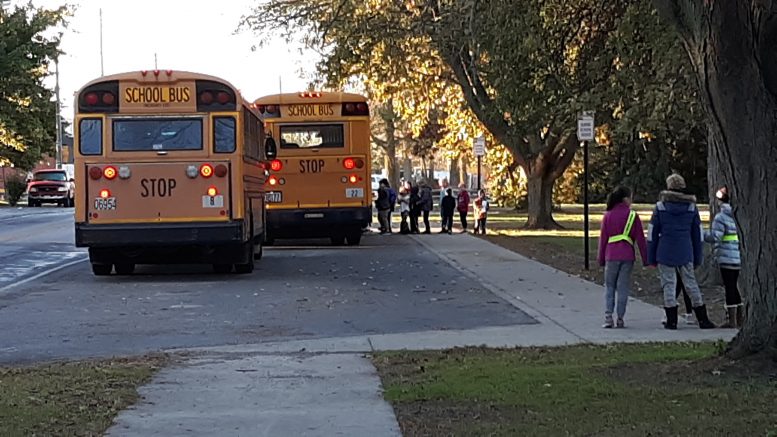By Susan Tebben
After years of work, an education overhaul bill that would have addressed the state’s public school funding formula could be put on hold yet again as the lame duck session comes to an end.
It doesn’t help that House Bill 305’s two sponsors are both out due to positive COVID-19 tests. State Rep. John Patterson, D-Jefferson, the bill’s main sponsor, is currently hospitalized with pneumonia, a respiratory complication of COVID-19.
“I don’t know if it’s going to happen, but the House has done its part,” Patterson said on Tuesday.
The House passed the bill on Dec. 3, moving the measure to the Senate, where it currently sits after being referred to the Senate Finance Committee on Dec. 9. They are not scheduled to hold another meeting before the end of the month, which also marks the end of the current General Assembly.
“The signals we’re getting through the Senate is there’s not enough time,” Patterson said.
The bill was specifically written to address Ohio Supreme Court rulings that said Ohio’s public school system relied too heavily on property taxes to determine funding levels. The new measure sought to create more balance, and fund the school districts more directly through the state.
Though Patterson won’t be a part of the next General Assembly due to term limits, he said he’s heard the incoming Senate President, Sen. Matt Huffman, R-Lima, has said education reform will be a top priority next year.
Patterson said the fact that there were only minor amendments added to the bill in House deliberations speaks to the work done in the work groups, many of whom were financial officers for public schools across the state.
“Now we need to educate all who are going to be in the new General Assembly, so that they can make sagacious decisions,” Patterson said. “The need hasn’t gone away just because the time is running out on the General Assembly.”
***
Also from Ohio Capital Journal:
Extend eviction moratorium to slow covid spread, advocates say
Ohio’s local courts should stop eviction proceedings, a group that advocates for the poor said Tuesday. Not only are thousands of Ohioans going to be forced out of their homes in the dead of winter, the proceedings and the evictions will make the covid crisis worse, they say.
The coronavirus pandemic has hit low-income Americans hard, throwing many out of jobs and sapping their ability to pay their rent. An estimated 530,000 Ohioans had slight or no confidence they could pay the coming month’s rent, according to the most recent Household Pulse Survey by the U.S. Census Bureau, conducted in November.
In response to the economic pain, the U.S. Centers for Disease Control and Prevention declared a moratorium on evictions that expires Dec. 30. But that hasn’t stopped eviction proceedings, said Graham Bowman of the Ohio Poverty Law Center.
“What these courts are doing is going through the eviction process,” he said. “However, they are merely delaying the ‘set-out’ where they actually order someone to be removed from their home.” READ MORE

